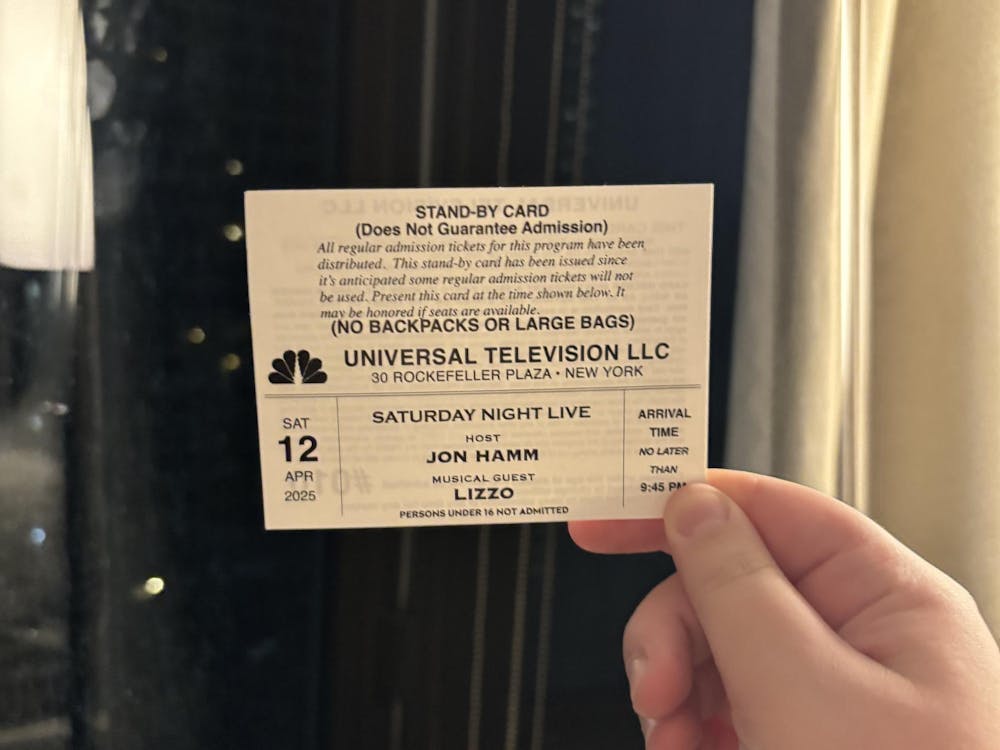On Super Bowl Sunday, two organizations pulled off miracles: the Eagles beat the Patriots, and Netflix made people interested in "Cloverfield" again.
A commercial for the sci-fi thriller "The Cloverfield Paradox" aired during the big game, with a twist: it would be dropping on the streaming site as soon as the game ended. Shadow dropping is a brilliant marketing scheme that stars like Beyonce have used effectively in the past; it generates a unique kind of buzz for the product -- it must be good if they don't even need to advertise it!
Under that ploy, however, lies the ugly truth: "The Cloverfield Paradox" was going to be D.O.A. The film was originally being developed at Paramount as "God Particle," to be released sometime last year. However, J.J. Abrams -- creator of the 2008 monster movie "Cloverfield" -- and his production company Bad Robot acquired "God Particle," rebranded it "The Cloverfield Paradox," and worked to include it in their budding sci-fi franchise. They used this same tactic with the (excellent) hostage thriller "10 Cloverfield Lane," a couple years ago. Delays followed production on "Paradox," until Netflix finally purchased the film for a whopping $50 million and sat on it for a few months.
Good on Netflix for generating hype for a film that most people either forgot about or had never even heard of. But maybe they should've let this one go gentle into that good night, because "The Cloverfield Paradox" is, to be blunt, a hot mess. It's a smorgasbord of sci-fi that plays out in increasingly perplexing and frustrating proportions, and its loose and tacked-on connections to the otherwise entertaining "Cloverfield" franchise don't do anything to save it from disaster.
"Paradox" follows the crew of the Cloverfield Space Station, which is armed with a particle accelerator that, if used successfully, could generate enough power to save humanity from a mounting energy crisis. However, the accelerator overloads, tearing into the space-time continuum and transporting the Cloverfield crew into another dimension. As they struggle to make their way back to Earth, their grasp on reality is undermined, and their greatest enemy becomes the strange new laws of nature.
Pick any space adventure stereotype, and you'll find it here -- an international crew of geniuses, quantum physics used for narratives by writers that don't understand it, a wrecked space station, depleting oxygen, an airlock death (or two), mutinies and betrayals, heroic sacrifices and strange creatures launching from a man's body. There are a few unexpected, reality bending scenes, one of which is gruesome, the others of which are ridiculous and almost laughable.
The cast of characters is, for the most part, forgettable. The dialogue, which retains a heavy sense of exposition throughout, dampens any substantial character development. The writers committed one of the most egregious filmmaking errors -- they assumed that the audience needs everything explained to them. The results of this are, as always, almost entirely negative. For one, the characters become mouthpieces for the plot rather than three-dimensional beings. Only crew member Hamilton, played with as much bravura as possible by the talented Gugu Mbatha-Raw, stirs any emotion throughout the film.
Another dire consequence is that, by explaining everything through unrealistic dialogue and heavy-handed foreshadowing, the film lacks in any of that tension that can stem from mystery. From a first-act speech by a scientist laying out the threat of using the particle accelerator, it becomes obvious what's going to happen for the rest of the movie and, if you've ever seen "Cloverfield," how it connects to the rest of the franchise. The shallow plot never rises above his warning -- space-time can be broken, dimensions will blur, and who knows what kind of monsters can arise from such a disturbance?
Glossy production cannot save "The Cloverfield Paradox." It's like trying to decorate a gingerbread house; regardless of how pretty it looks, it will still collapse if the slightest pressure is applied to it. This might be a big budget installment of a fairly well known series, but its quality leaves much to be desired.
2/5 stars
keelinst@miamioh.edu



